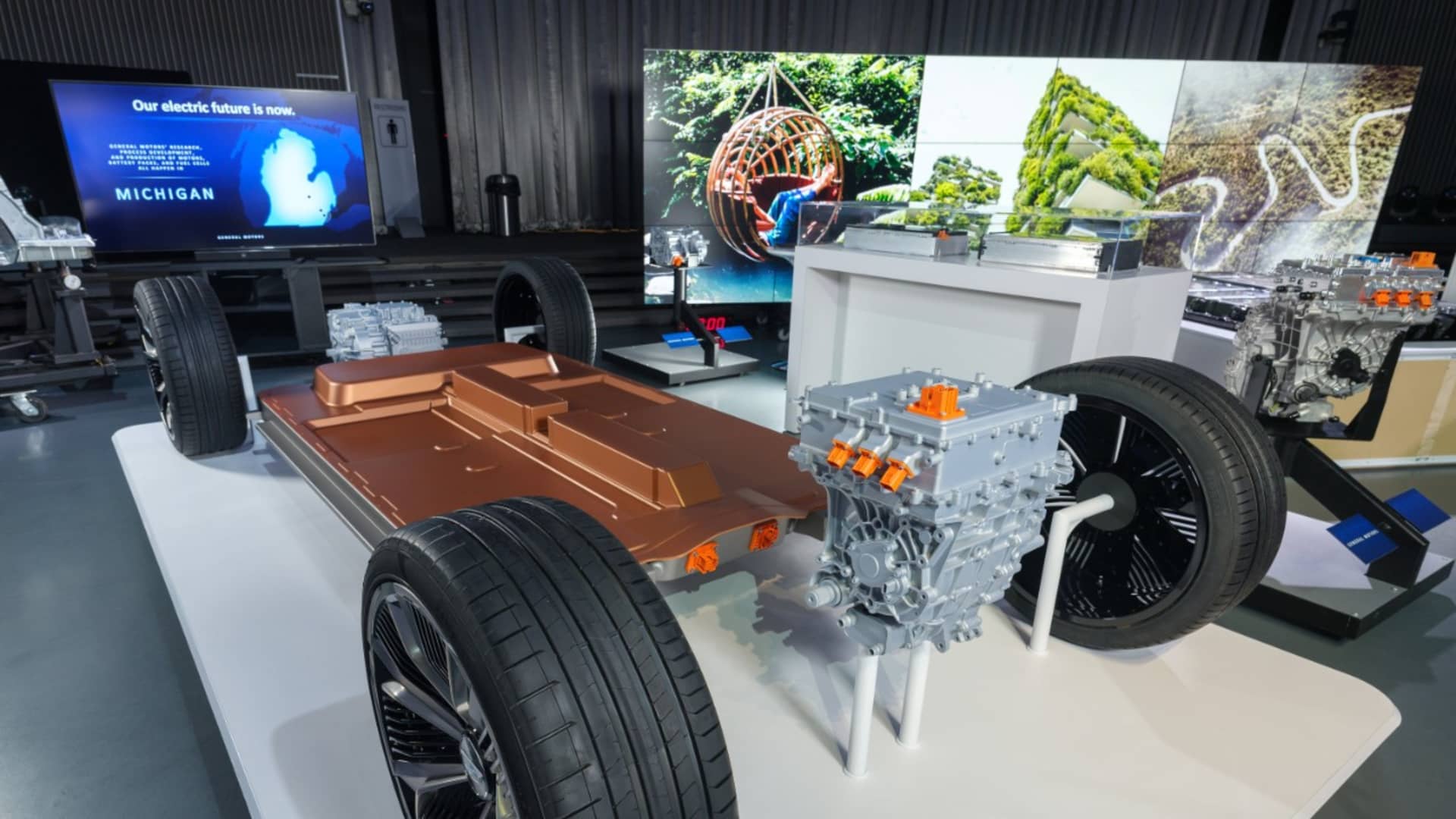General Motors unveiled its latest innovative platform and battery system, Ultium, on March 4, 2020, at its Tech Center campus in Warren, Michigan. The photo, captured by Steve Fecht for General Motors, showcases the company’s commitment to electric vehicles (EVs) and advanced technologies.
In the midst of tense labor negotiations between the United Auto Workers (UAW) union and major automakers, there’s a crucial factor that could greatly impact the future of the automotive industry and President Joe Biden’s push for domestic manufacturing: multibillion-dollar EV battery plants. These plants, expected to employ thousands of workers, have the potential to fundamentally transform the UAW, automakers, and the manufacturing landscape.
However, there’s a catch. The battery plants are not part of the current negotiations. Most of these plants are separate joint ventures with their own operations, negotiations, and contracts. These contracts fall outside the purview of the labor agreements being negotiated with General Motors, Ford Motor, and Stellantis, with a deadline looming on September 14. The automakers argue that the joint venture plants are not legally within the scope of the discussions.
Nonetheless, the UAW leadership has prioritized securing a “just transition” to EVs for auto workers, including those at the battery plants. Current and former union leaders emphasize that the battery plants need to be a priority for the organization’s long-term viability, regardless of whether they are directly addressed in the national agreement. UAW President Shawn Fain criticized the automakers, referring to their actions as a “shell game” and asserting that they want to drive down labor standards.
Interestingly, both sides could potentially leverage the battery plants indirectly during the negotiations. By incorporating future protections or restrictions for EV workers into the labor agreements covering traditional auto workers, they can establish a model for future negotiations regarding EV workers.
General Motors stands out as the only Detroit automaker with a unionized joint venture battery plant currently in operation. This position presents a unique negotiating challenge and an opportunity to set standards for the industry. GM CEO Mary Barra and other executives have stated that it’s up to the workers to decide if the battery plants should be unionized, as these positions differ from traditional assembly jobs. They argue that these roles should be compensated at lower rates since they involve creating parts for the vehicles rather than assembling the final products. Workers at GM’s Ultium battery plant in Ohio earn between $16 and $22 per hour, along with full benefits, incentives, and tuition assistance. These wages align with those of suppliers and “subsystem” workers employed by UAW members at major automakers but are lower than the wages of traditional auto workers who assemble vehicles and engines.
Fain has criticized both the automakers and the Biden administration for utilizing federal tax dollars to subsidize the facilities without committing to improved wages and benefits for workers. He has withheld an endorsement for President Biden’s reelection until the concerns of the auto industry’s transition to EVs are addressed.
Meanwhile, the Detroit automakers have collectively announced $22 billion in investments for eight U.S. battery plants, including a $3.5 billion plant in Michigan that will be wholly owned by Ford rather than a joint venture. These plants are set to commence operations within the next four years.
The UAW recently released a white paper highlighting safety issues and concerns at the Ultium plant, just days before the official start of national contract negotiations. The union suggests that the UAW-GM national labor agreement could serve as a successful model for addressing safety concerns at the Ultium Cells Lordstown plant and other battery cell manufacturers.
The UAW could advocate for a multicompany agreement or negotiate a new national pact with the automakers, and subsequently engage in bargaining with Ultium to establish a similar deal. While the union aims for high-paying battery jobs, it may also consider modeling a contract based on the wages of subsystem workers. However, Ultium and the UAW are reportedly far apart when it comes to negotiating wages and benefits.
General Motors declined to comment on the white paper, directing inquiries to its joint venture with LG Energy Solution, Ultium Cells. An Ultium spokeswoman denounced the report and disputed the characterization of the plant by the UAW, deeming their safety concerns “knowingly false and misleading.”
Denial of responsibility! VigourTimes is an automatic aggregator of Global media. In each content, the hyperlink to the primary source is specified. All trademarks belong to their rightful owners, and all materials to their authors. For any complaint, please reach us at – [email protected]. We will take necessary action within 24 hours.


